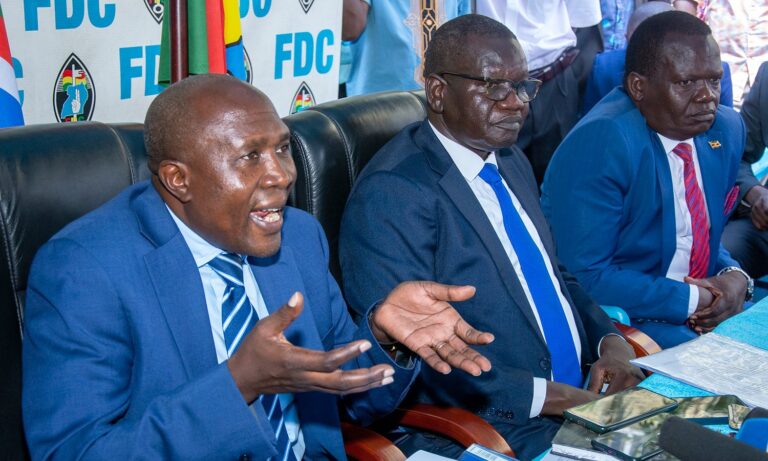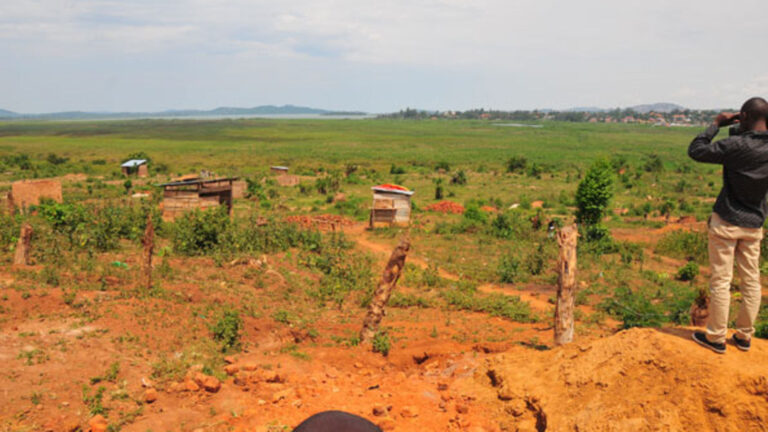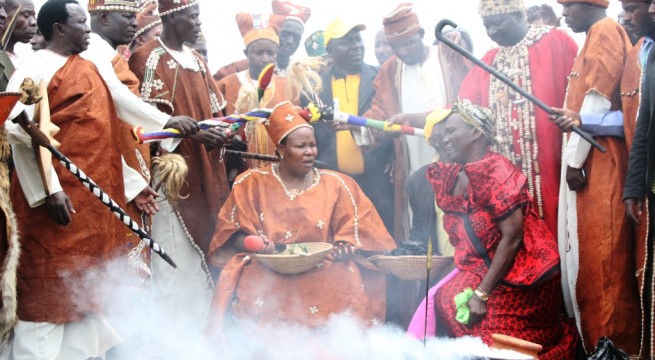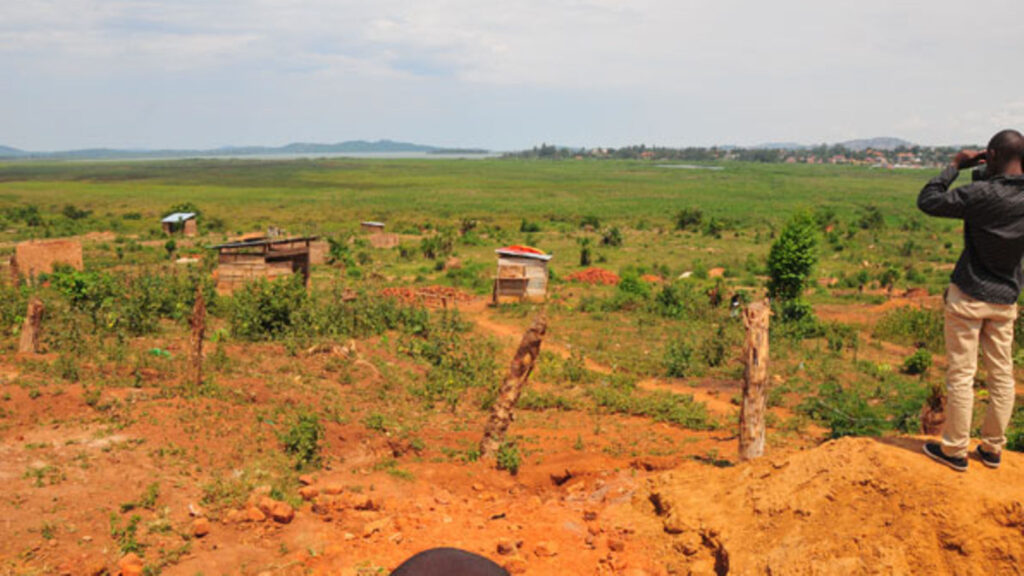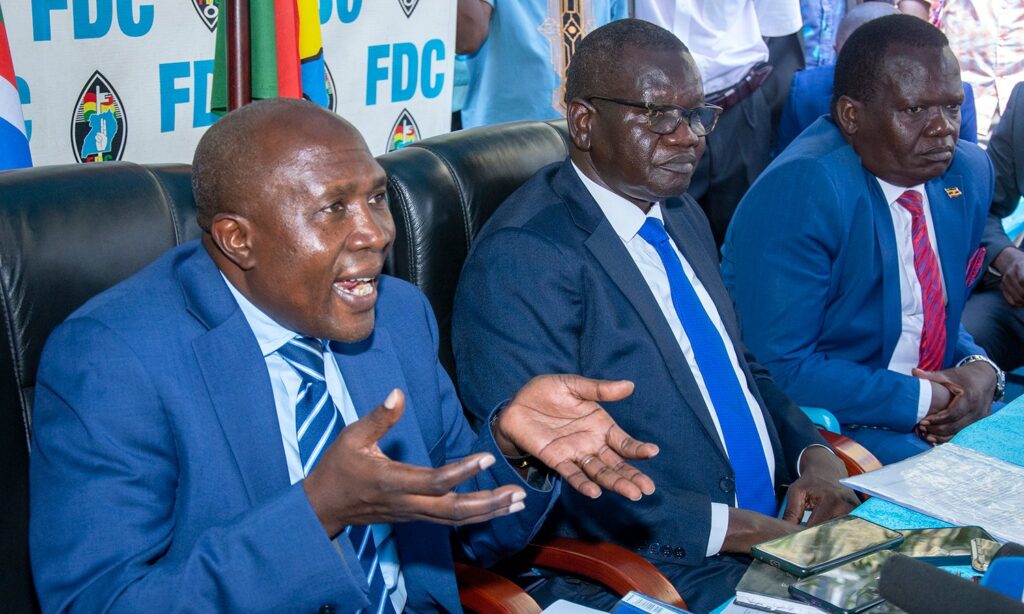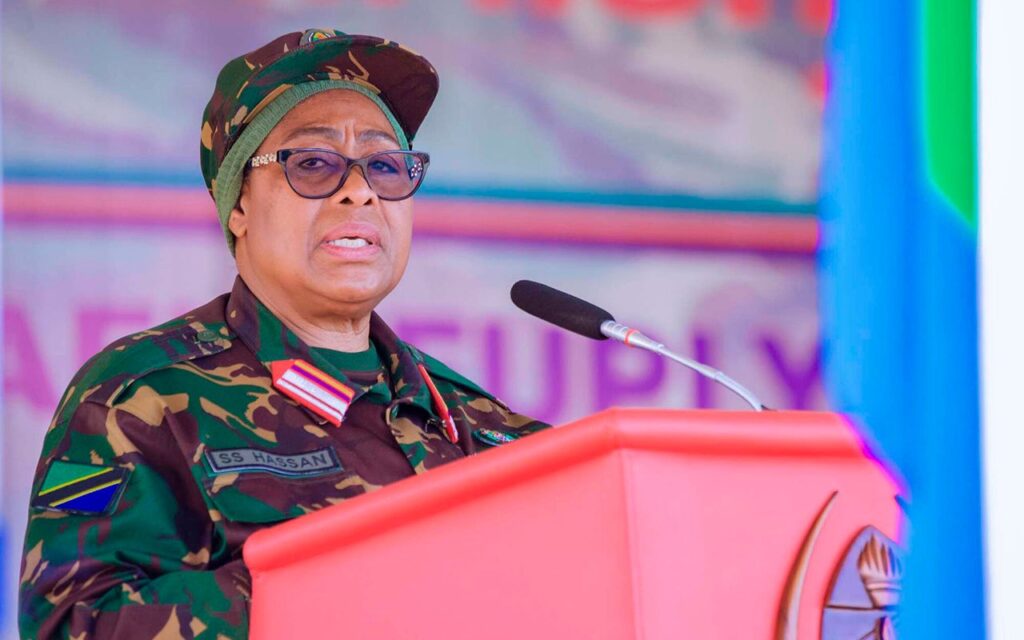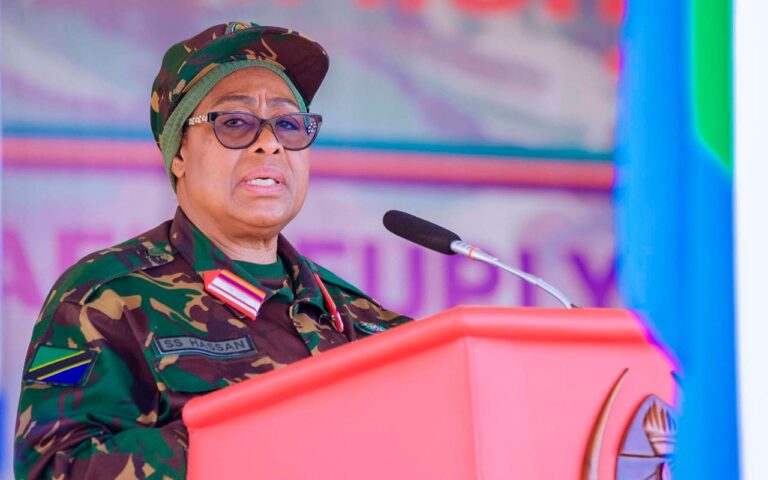PRESIDENT ON MAILO LAND
On The Heroes’ Day of 2021, H.E. President Yoweri KagutaTibuhaburwa Museveni expressed his disgust for the mailo land tenure system treasured by the Baganda, whose mental senses he questions; because this system is not found anywhere else in Uganda. He went on to tell all and sundry that it is his sworn intension to ensure that he drafts laws that will deal with this anomaly once and for all. Because, according to him this is the root cause of all the problems on land; especially the brutal and at times, fatal evictions of people from land.
This might have been the tenth time or so for the president to express himself on this matter in similar tones. Many people who seek favours from him have also picked the mantle and talked ill about the mailo land ownership system. Unfortunately though, most of these president’s followers exhibit lack of sufficient information to back up the ill they talk about mailo land.
The Katikkiro, in his official capacity, together with other clear minded people in Buganda and Uganda, have indicated that problems on land are not a result of mailo land tenure system. Their comments need not be repeated here. But it is the observations of many that the bulk of problems are a result of the quality of people entrusted with land administration, and the various laws on land enacted by the current legislators. There are numerous other people chased off land outside mailo land tenure coverage.
The president frequently refers to the Bamugemereire Commission Report as one of his sources of information on this issue. It is unfortunate that this report is not yet made public for review and discussion. It will be a loss of public money, and it is a lot of money, if the report is sidelined, as it seems it may be, and new ideas/reasons are tabled in parliament for enactment of yet new laws for land administration. The Prime Minister is already gearing up for this.
It is unfortunate though, that many who speak ill about mailo land tenure are not articulate on the origins of mailo land tenure.This is normal for people that are weak at asking these simple questions: what, why, when, and how. Here is help to them.
What is mailo land?
This is just a name that was coined by the Baganda to refer to land in Buganda that was measured using the Imperial (British) measuring system that was being used by the British then (inch, foot, yard and mile). Because the areas being measured then were expansive, they were measured in mile lengths and sizes—square miles. The Baganda conveniently referred to this land as mailo land (ttaka lya mailo). This also settles the how. So why demonize (mailo, mile land?
Why and when did this (animal) come to Buganda?
Buganda was not colonized like other British colonies. Those who studied SST may remember that the British colonization system first came to Buganda through a trading company known as Imperial British East Africa Company (IBEAC). This was followed by the Church Missionary Society (CMS) missionaries. This is the team that instigated the British government to colonize Buganda and subsequently Uganda.
On 1stApril 1893 The Union Jack replaced the IBEAC flag at Old Kampala, where IBEAC, through Captain Lugard, had its headquarters; thus making Buganda a “Britsh Protectorate”. This was a secret deal between Lord Roseberry the then British Prime Minister, Sir Gerald Portal, the then British Consul General at Zanzibar and Bishop Alfred Tucker of CMS, based at Namirembe. The British Parliament ratified this arrangement more than a year later on 19th June 1894.
Earlier on, on the 10th of August, 1891Mcdermott, IBEAC Secretary, had given Captain Lugard instructins to close the company for its poor trading results. It was not making profits and it had run out of working capital. At that time Bishop Tucker who was in Britain approached his CMS members and asked them to raise money for the company so that Capitan Lugard would stay in Buganda to continue giving the Missionaries security which they needed for their continued stay in Buganda. He managed to raise 15,000 pounds of the 40,000 pounds required to run the company (country) for a year. He immediately sent the 15,000 to Captain Lugard with instructions to stay in Buganda as he (Bishop Tucker) approached the Prime Minister (his acquaintance) to persuade him to ask Parliament for Britain to take on the administration of Buganda. This was not easy but Bishop Tucker finally achieved it after a lot of lobbying.
During this time, there were many religious wars in Buganda. And IBEAC was not making money. So the British Parliament was not enthusiastic to put money in the Roseberry, Tucker, Lugard Venture. As a way of raising revenue, the colonial government hatched the idea of commercializing land HENCE THE 1900 AGREEMENT. (See, 9,000 sq. miles etc.below).
Many people keep on demonizing the mailo land tenure system by giving a wrong picture that the chiefs in Buganda connived with the British to give themselves land and that the chiefs chased people off their land when they acquired it.THIS IS WRONG.
The Truth
Before colonization, The Kabaka held all the land in trust for the people of Buganda. He therefore bequeathed it to his subjects in appreciation for work done. He even gave it to institutions like churches. The Bataka, Clan heads and Chiefs got both official and private land, from the hand of the Kabaka and not the Colonialists.
Since what the Kabaka gave to his subjects was not surveyed, The 1900 Agreement provided that:
“As regards to the allotment of the 8000 square miles among the 1000 private landowners, this will be a matter to be left to the decision of the Lukiiko, with an appeal to the Kabaka. The Lukiiko will be empowered to decide as to the validity of claims, the number of and the extent of land granted, permitting that the total amount of land thus allocated amongst the chiefs and accorded to native land owners of the country is not to exceed 8,000 square miles.”
So where do mailo land detractors get the audacity to say that people were cheated out of their land when they had audience up to the Kabaka?
What is also true is that there were no deaths reported emanating from the demarcations of land then. And what also comes out is that the 1900 agreement shared out land equally among similar categories of people and institutions.
A quotation relating to one category of land owners whose land was measured reads:
“One thousand chiefs and private landowners will receive the estates of which they are already in position, and which are computed at an average of eight square miles per individual, making a total of 8,000 square miles”.
The mailo land criticizers deliberately talk of chiefs and leave out the private land owners. It is important to remind them that during that time land ownership was categorized as official (institutional) or personal (private).
Which they are already in position meaning that no one was given what one did not have.
After rationalizing land ownership, the colonial ‘government’ was therefore able to levy taxes on land owners. These are the taxes they used to run the colonization process.
The 1928 Busuulu and Nvujjo uprising was not focused at the Baganda chiefs, as it is alleged. It was, instead, focusing at the colonialists whom the Baganda felt were oppressing them; remembering how these taxes came and whom they were benefiting.(See the 9000 sq miles below)
All land in Buganda is mailo land.
Ironically, many milo land haters do not realize that all land in Buganda is mailo land because it was all measured out in square miles. Another eye opener from the 1900 Agreement reads:
“Should, however, the area of Uganda (meaning Buganda) be established at more than 19,600 square miles, the surplus shall be dealt as follows:…..”
In Buganda, there is privately owned mailo land and undistributed mile land which is approximately equal to 9000 square miles.
THE 9,000 SQUARE MILES
After surveying the 9,600 square miles of land belonging to the various owners, the colonialists reserved 9,000 square miles which they designated as Crown land. The titles to this land were in the names of the Queen.
The 1900 Agreement reads:
“The aforesaid 9000 square miles of waste, cultivated or uncultivated, land or land occupied withoutprior gift of the Kabaka or chiefs (chiefs also gave out land) by bakopi or strangers (meaning encroachers) are hereby vested in the Queen of Great Britain ……………and Protectoress of Uganda (Buganda) on the understanding that the revenue derived from such lands shall form part of the general revenue of the Uganda Protectorate.”
This land was returned to Buganda on the 8th of October 1962.
Safeguarding land in Buganda
During the good old days when Buganda was still Buganda, (ku ntikko as Katikkiro says) things were run and done in an honest and just manner. Every one was expected to be honest and well behaved which behavior included curtsy. It was imperative for one to have these qualities before one would get any position of leadership. Baganda would always want to know the background of anybody being considered for an office or responsibility. These leadership qualities were instilled into people right from home. It is because of these values that safeguarding land in Buganda was the responsibility of the leaders. Starting with the Mutongole (LC I) up to the Kabaka. That is why the 1900 Agreement referred all grievances that would arise out of the surveying of land, to the Lukiiko and finally to the Kabaka. The Kabaka leads through his chain of command (Maasomogi) which starts with the Katikkiro on top and ends in the household of a Muganda. To these, you add all the Buganda public that relay information to the Kabaka through various channels. It was therefore difficulty during those days to steal land—titled or untitled. The truth would always come out. There were no missing files which is the order of the day in almost all government offices now!!
Unlike those days, many land wrangles now are a result of dishonesty in society arising from the poor quality of many people in leadership positions. This starts from the family level upwards. Those days a Mutongole was the keeper of the bibanja and mailo land. A Mutongole would not allow a mailo owner or a kibanja holder to cheat the other. Today, it is the opposite.
What is a Kibanja
Another cause of problems arising from land in Buganda is the failure to know the meaning of a Kibanja. A kibanja is a piece of land given by a mailo owner to anybody. A kibanja must have clearly demarcated boundaries and be registered by the mailo land owner and the Mutongole. These days you find people claiming to be bibanja holders without even knowing their mailo land owner. Many people buy or settle on pieces of land without caring to know the mailo land owner. These are the majority of people ganging up to demand mailo land owners to give them certificates of ownership, day light robbery.
Way forward.
If Uganda is to get out of this land wrangle era permanently it is suggested that:
- We should have a plan. Uganda should not react like it normally does with many issues. The plan should look beyond this generation. The 1900 generation foresaw the population growth in Buganda. That is why they left in reserve half of the land of Buganda.
- If government wants to settle bibanja holders on permanently owned land of their own, government should let go the 9,000 square miles and task The Kabaka to settle all those that qualify to own it in perpetuity. This may sound thorny to many people but that is the reality. The youth in Buganda will always keep on nagging the government in power for their land. I cannot see Buganda youth being different from other people all over the world.
- Let government have no illusion of having a country with everybody owning a piece of land. This is not tenable and there is no country in the world where everybody owns land.
- Government should eliminate land fragmentation created by settlers on people’s land. Settlers make it difficult for mailo land owners to do commercial developments on their land. Yet the settlers on the land are equally not in position to develop their envelop size parcels of land.
- Government should put in place rules, regulations and people to govern/administer land honestly and justly as it was in Buganda (Uganda) before.
By D.M.O. MULAGWE
Member of Buganda Lukiiko
Tel. 0772472125
July 2021


